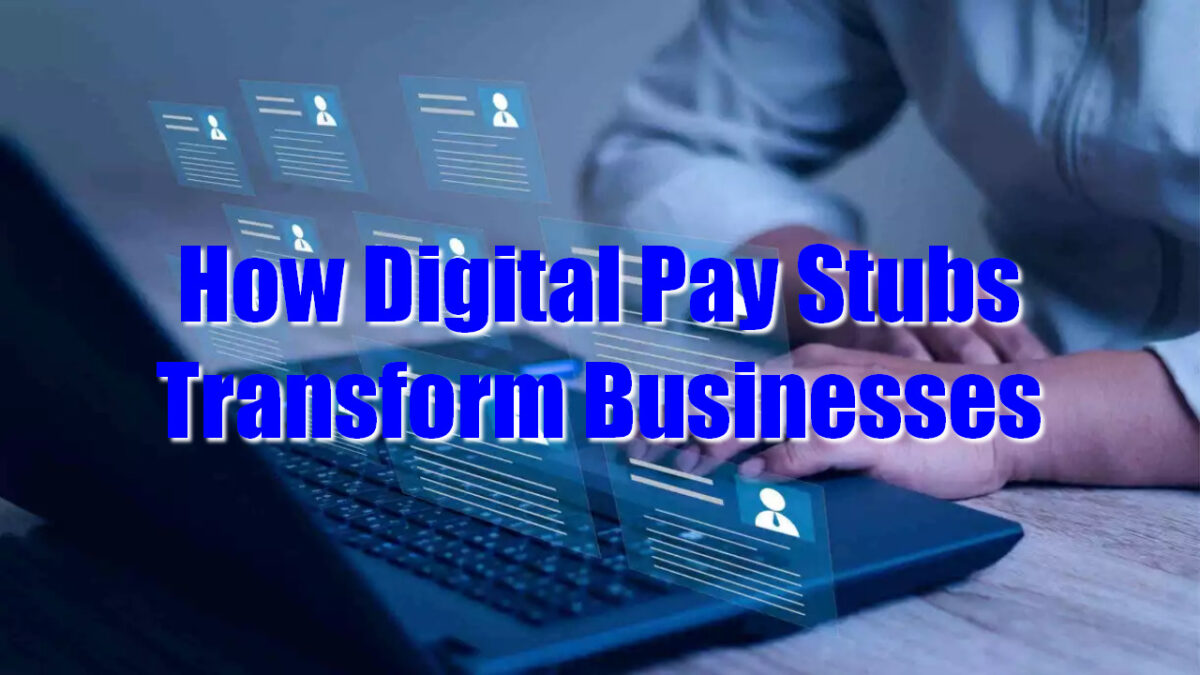Technological advancements continue to reshape traditional practices in the ever-evolving landscape of business operations. One notable transformation has been the shift from paper-based processes to digital solutions. Among these, the transition from paper pay stubs to digital pay stubs stands as a prominent example of how technology can revolutionize business operations. This article explores the transformative impact of pay stubs digitalization on businesses, highlighting the benefits and implications of this modern approach.
Streamlined Payroll Management

Digital pay stubs bring a breath of fresh air to the often intricate and time-consuming task of payroll management. Traditional paper-based systems are prone to errors and demand substantial administrative effort. In contrast, digital pay stubs offer automation and accuracy. With the click of a button, businesses can generate and distribute pay stubs to employees, reducing manual labor and the likelihood of mistakes. This streamlined approach saves time and resources, and allows payroll professionals to focus on more strategic aspects of their roles.
Enhanced Accessibility and Employee Empowerment
One of the most notable transformations digital pay stubs bring is improved accessibility for employees. Gone are the days of waiting for a physical pay stub to arrive by mail or having to pick it up from the office. Online pay stubs platforms provide employees with instant access to their earnings, deductions, and other relevant financial information. This accessibility fosters a sense of empowerment, allowing employees to take greater control of their financial well-being and plan their budgets more effectively.
Environmental Responsibility and Cost Savings
In a world increasingly focused on sustainability, the environmental impact of business practices cannot be overlooked. The transition to digital pay stubs aligns with eco-friendly initiatives by significantly reducing paper usage and waste. Businesses that adopt digital pay stubs contribute to a greener future by minimizing their carbon footprint and conserving precious resources. Moreover, the cost savings associated with paper, printing, and distribution expenses can translate into substantial financial benefits for businesses.
Data Security and Compliance

Digital pay stubs also elevate the level of data security and compliance within organizations. Paper pay stubs are susceptible to loss, theft, or damage, potentially exposing sensitive employee information. But digital ones can be safeguarded through encryption and secure digital storage. This enhanced security ensures that confidential payroll data remains protected from unauthorized access, reducing the risk of breaches and compliance violations.
Seamless Integration and Analytics for Strategic Insights
The modern world offers businesses opportunities beyond mere digitization. Digital pay stubs can seamlessly integrate with other HR and accounting systems, creating a cohesive ecosystem of interconnected processes. This integration reduces manual data entry and provides a more holistic view of employee compensation and financial trends. Businesses can leverage analytics tools to gain valuable insights from pay stub data, enabling them to make informed decisions related to compensation structures, benefits offerings, and workforce optimization.
Conclusion
As businesses continue to evolve in an era of rapid technological advancement, the transformation from paper pay stubs to their digital counterparts emerges as a pivotal step. The efficiencies, accessibility, cost savings, and security enhancements offered by digital pay stubs position businesses for a more agile and responsive future. By embracing this transformation, organizations modernize their payroll practices and lay the foundation for a streamlined and empowered workforce, where financial transparency and sustainability go hand in hand with operational excellence.
